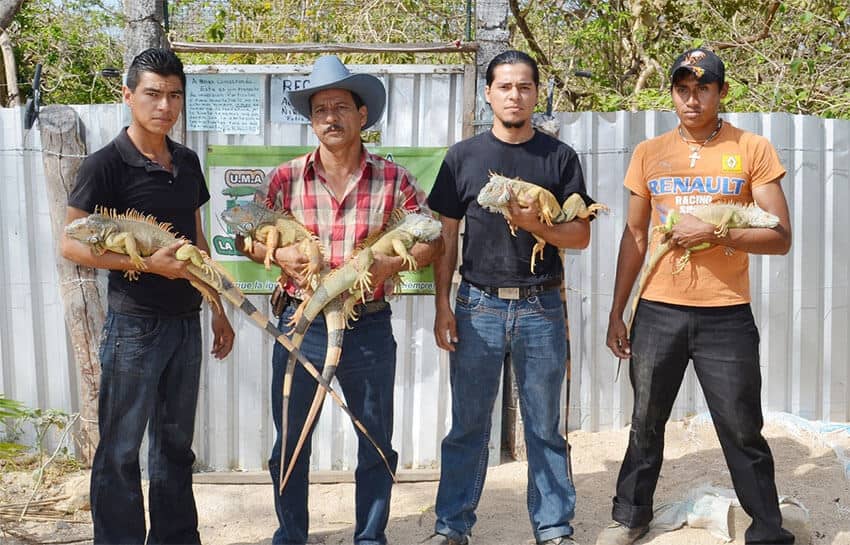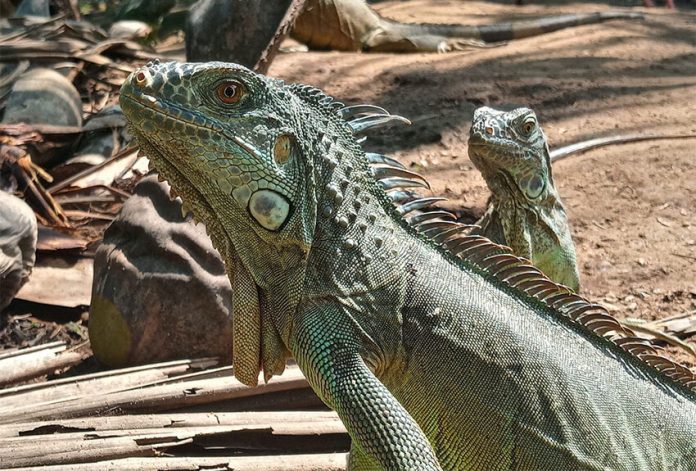The once threatened green iguana is now in high demand — as a pet.
Wildlife Management Units (UMA) in Chiapas expect to raise 35,000 green iguanas this year, a welcome turnaround for the reptile, which was endangered in Chiapas a decade ago due to the culinary popularity of its eggs and meat.
Every year in March, female iguanas make their nests in sandy caves and lay 50-70 eggs. The UMAs focused on raising the species near the Pacific coast in the municipalities of Mazatán, Tuzantán, Mapastepec and Arriaga, replicating those conditions to maximize the reproduction of the reptiles.
Many of the iguanas eventually find homes in Chiapas.
One of the experts who raises iguanas, Fernando Tort, said the coldblooded lizards are very docile, manageable and suitable as pets for people with little space looking for the company of a calm animal.

As well as being raised in Chiapas, iguanas are being exported for sale from El Salvador to Mexico and the United States, Tort added.
The short-legged, bright green creatures have sharp claws and long, thin tails and can measure more than two meters in length. They have thick scales that cover their skin to provide protection against water and loose skin hanging from their necks. Despite their peculiarities, iguanas are not demanding as pets: They spend more time sunbathing than eating.
However, iguanas need to live under certain conditions, with a terrarium offering the correct light, humidity and temperature. The climate in Chiapas meets the right tropical conditions, which is part of the reason that pet ownership has boomed in the region.
Ten-year-old Carlitos Lizárraga said he has enjoyed the company of such a calm pet. “It isn’t like a dog or cat that runs around the house destroying things. It’s quiet and very friendly. I’ve already had it a year and there are no problems because my grandfather made it a terrarium … it has a trunk and a cave. It eats fruits and vegetables that my mother uses in the kitchen … It’s really good for children,” he said.
Edson Martínez sells small iguanas for 250-300 pesos (US $12.50-$15) from a pet shop in Tapachula. He said that people looking to take home an iguana should provide it with an adequate space. “We try to raise awareness because these animals grow and at some point they react by instinct,” he warned.
Martínez added that the reptiles can easily live alongside dogs and cats and are happy strolling around the house.
With reports from Milenio
